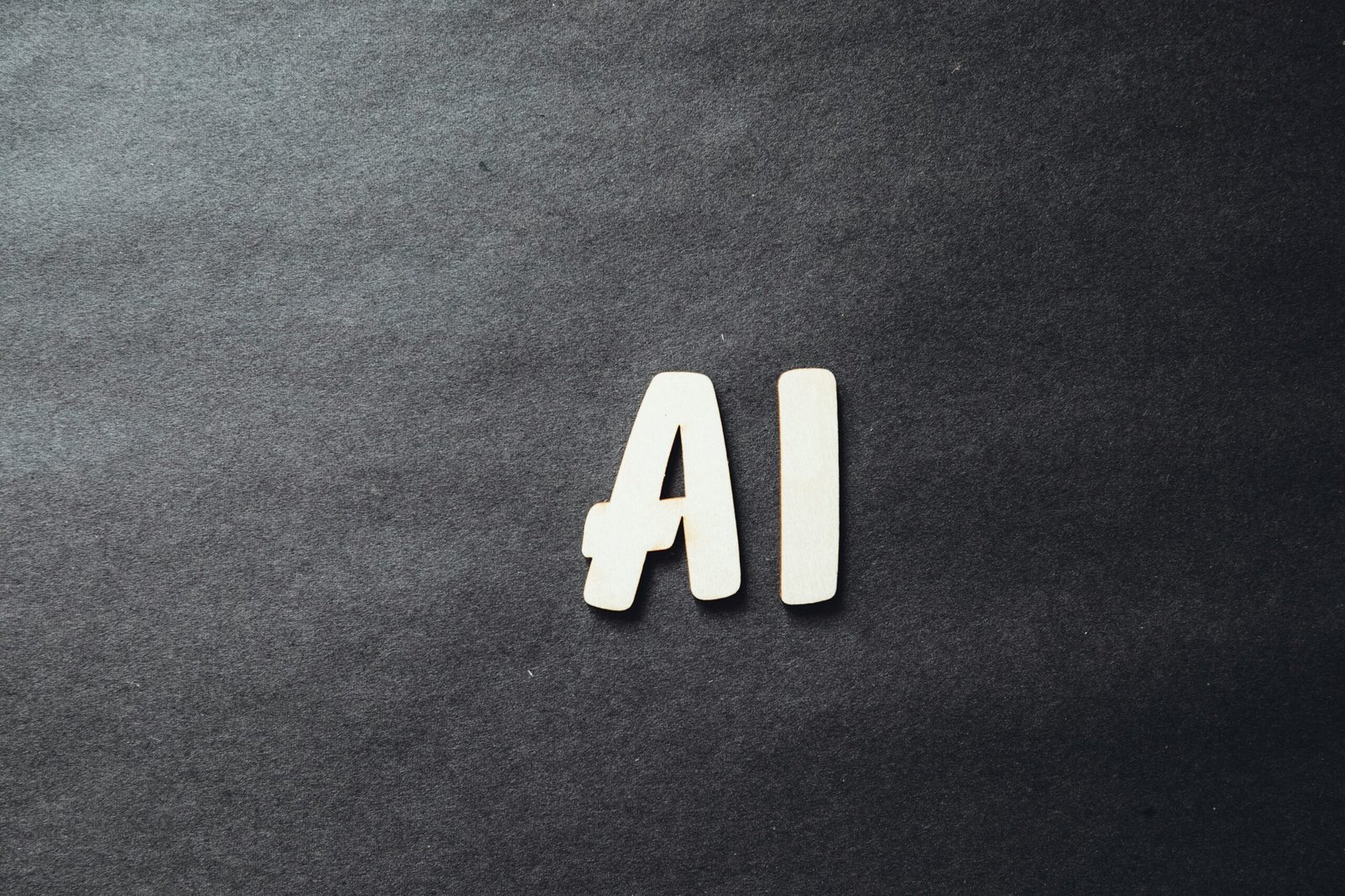ChatGPT Still Not Meeting Data Accuracy Standards, EU Data Protection Board Says

Photo by Markus Spiske on Unsplash
Introduction
Data accuracy in artificial intelligence models is a critical concern, particularly as these models become increasingly integral to various sectors, including healthcare, finance, and customer service. The European Union Data Protection Board (EDPB) has recently scrutinized the data accuracy standards of OpenAI’s ChatGPT, an AI language model that has gained widespread usage. This blog post delves into the EDPB’s findings, highlighting the importance of maintaining stringent data accuracy standards in AI systems. We will explore the current shortcomings identified by the EDPB, the potential implications for end-users and developers, and the measures that need to be taken to improve data accuracy in AI models like ChatGPT.
Background on ChatGPT
ChatGPT, developed by OpenAI, is a sophisticated language model designed to generate human-like text based on the input it receives. Leveraging advanced machine learning techniques, specifically the generative pre-training transformer (GPT) architecture, ChatGPT has been trained on a diverse range of internet text. However, it is important to note that it does not know specifics about which documents were part of its training set, and it does not have the ability to access or retrieve personal data unless explicitly provided during a session.
The primary applications of ChatGPT span various domains, including customer service, content creation, and personal assistance. Businesses integrate ChatGPT into their customer support systems to handle inquiries and provide automated responses, thereby streamlining operations and enhancing customer experience. In the realm of content creation, ChatGPT assists writers, marketers, and social media managers by generating ideas, drafting articles, and even composing complete pieces of content. Personal assistants powered by ChatGPT are becoming increasingly popular, offering users help with scheduling, information retrieval, and task management.
Despite its array of applications and the convenience it offers, ChatGPT has faced scrutiny regarding the accuracy and reliability of the information it produces. There have been instances where the model has generated content that is factually incorrect, misleading, or biased. These concerns have raised questions about the dependability of ChatGPT, particularly in scenarios where accurate and reliable data is paramount. Users and organizations have reported various episodes where the output of ChatGPT did not meet expected standards of data accuracy, prompting further examination and critique from regulatory bodies and stakeholders.
Role of the EU Data Protection Board
The European Union Data Protection Board (EDPB) serves as a critical oversight body within the EU, tasked with ensuring the uniform application of data protection regulations throughout member states. Established under the General Data Protection Regulation (GDPR), the EDPB’s primary mission is to safeguard the fundamental rights and freedoms of individuals, particularly their right to data protection and privacy. This mandate encompasses a broad range of responsibilities, including advising on legislative measures, issuing guidelines, and providing best practices for data processing activities.
As an authoritative entity, the EDPB holds the power to investigate and regulate various aspects of data protection, including the accuracy of data processed by artificial intelligence (AI) technologies. Given the increasing reliance on AI systems like ChatGPT, the accuracy and integrity of data used and generated by these technologies are of paramount concern. The EDPB is responsible for evaluating whether AI applications meet the stringent data accuracy standards set forth by the GDPR. This evaluation process involves rigorous scrutiny of how data is collected, processed, and utilized by AI systems to ensure compliance with established regulations.
Moreover, the EDPB collaborates with national data protection authorities (DPAs) to conduct investigations and enforce compliance. This collaborative approach enables a coherent and unified regulatory framework across the EU, ensuring that AI technologies like ChatGPT adhere to high standards of data accuracy and privacy. The EDPB’s role extends to issuing binding decisions on cross-border data protection issues, thereby reinforcing its commitment to maintaining robust data protection standards.
In summary, the EDPB plays a pivotal role in the landscape of data protection within the EU. By upholding stringent data accuracy standards and overseeing the compliance of AI technologies, the board ensures that the rights to data privacy and protection are effectively preserved for all EU citizens. This vigilance is crucial in an era where AI technologies continue to evolve and permeate various sectors, making the EDPB’s mission more relevant than ever.
Current Data Accuracy Standards
The data accuracy standards that AI models like ChatGPT are expected to meet are defined by a combination of regulatory requirements and industry benchmarks. These standards are essential for ensuring the reliability and trustworthiness of AI-generated content, particularly in sectors where precise information is critical. The European Union, through its General Data Protection Regulation (GDPR), imposes stringent requirements on data accuracy. Under Article 5 of the GDPR, data controllers are mandated to ensure that personal data is “accurate and, where necessary, kept up to date.” This principle extends to AI systems that process personal data, requiring them to implement mechanisms for ongoing accuracy validation.
In addition to regulatory frameworks like the GDPR, various industry benchmarks also play a crucial role in setting data accuracy standards. Industry-specific guidelines, such as those from the International Organization for Standardization (ISO), provide a comprehensive framework for data quality management. ISO 8000, for instance, outlines the requirements for data quality, including accuracy, consistency, and completeness. Adhering to such guidelines helps organizations maintain high standards of data integrity, which is vital for the efficacy of AI models.
To meet these standards, AI developers are encouraged to incorporate rigorous data validation and verification processes into their workflows. This includes employing advanced algorithms for data cleaning and employing robust testing methodologies to assess the accuracy of AI outputs. Additionally, continuous monitoring and periodic auditing are recommended to ensure that the AI systems maintain high levels of data accuracy over time.
The overarching goal of these data accuracy standards is to foster trust in AI technologies by ensuring that the information they generate is dependable. As AI continues to permeate various aspects of daily life and business operations, maintaining high data accuracy standards is paramount for achieving broader acceptance and reliability of AI-driven solutions.
EDPB’s Findings on ChatGPT
The European Data Protection Board (EDPB) recently scrutinized ChatGPT’s adherence to data accuracy standards, revealing several areas where the AI system falls short. The EDPB’s assessment raises significant concerns about the reliability and precision of information generated by ChatGPT, highlighting the need for continuous improvements in this domain.
One of the primary issues noted by the EDPB is ChatGPT’s tendency to generate information that may be factually incorrect or misleading. The AI model, while advanced in its language processing capabilities, does not consistently verify the accuracy of the data it provides. This can lead to the dissemination of erroneous information, which is particularly problematic in contexts requiring high factual reliability, such as legal advice, medical information, and financial consultation.
Additionally, the EDPB pointed out instances where ChatGPT’s responses were not aligned with the latest data or developments. For example, the AI has been found to occasionally provide outdated information due to its training data being limited to a specific cutoff date. This lapse in up-to-date accuracy can undermine user trust and the practical utility of the AI in real-time scenarios.
The EDPB also highlighted specific examples where ChatGPT has failed to distinguish between verified facts and speculative content. In one cited instance, the AI provided speculative statements regarding emerging technologies without clarifying the speculative nature of such information. This blurring of lines between fact and conjecture poses a risk to users who may take the AI’s outputs at face value.
Moreover, the EDPB emphasized the lack of transparency in ChatGPT’s data processing methods, making it difficult for users to assess the reliability of the information provided. The board calls for enhanced mechanisms to ensure that the AI’s outputs are not only accurate but also transparently generated, enabling users to understand the basis of the information they receive.
Overall, the EDPB’s findings underscore the need for ongoing efforts to refine ChatGPT’s data accuracy and reliability, ensuring that the AI can meet the high standards required for responsible and effective information dissemination.
Implications for Users and Developers
The findings of the European Data Protection Board (EDPB) regarding ChatGPT’s data accuracy carry significant implications for both users and developers. For users, the primary concern is that data inaccuracy can severely undermine trust. When users rely on ChatGPT for information, whether for professional advice, educational purposes, or everyday queries, the expectation is that the responses are both accurate and reliable. In cases where the data provided is incorrect, users may make flawed decisions that can have far-reaching consequences, thereby diminishing their trust in the technology.
Moreover, the overall user experience can be negatively impacted by data inaccuracies. Users may encounter frustration and dissatisfaction when they receive incorrect or misleading information. This can lead to a decreased likelihood of continued use and reduced engagement with the platform. For a tool that is designed to facilitate and enhance user interaction, maintaining high standards of data accuracy is essential to ensuring a positive user experience.
For developers, the EDPB’s findings highlight the pressing need to address data accuracy within ChatGPT. One of the primary challenges lies in the complexity of natural language processing and the inherent difficulties in ensuring that AI-generated responses are consistently accurate. Developers must invest in advanced algorithms, continuous training, and robust validation processes to enhance the accuracy of the data provided by ChatGPT.
In addition, developers have a responsibility to meet regulatory standards. Compliance with data protection and accuracy standards set forth by governing bodies such as the EDPB is not optional but a legal and ethical obligation. Failing to adhere to these standards can result in not only legal repercussions but also damage to the reputation of both the technology and the organizations behind it.
Ultimately, the implications of the EDPB’s findings serve as a call to action for developers to prioritize data accuracy. By doing so, they can better meet the needs of users, foster trust, and ensure compliance with regulatory standards, thereby contributing to the overall success and sustainability of AI-driven solutions like ChatGPT.
OpenAI’s Response and Actions
OpenAI has responded proactively to the European Data Protection Board’s (EDPB) findings regarding data accuracy issues in ChatGPT. Recognizing the importance of maintaining high data accuracy standards, OpenAI has issued statements acknowledging the concerns raised by the EDPB and outlining their commitment to addressing these issues comprehensively.
In their official response, OpenAI emphasized their dedication to continuous improvement and transparency. They have announced several initiatives aimed at enhancing the accuracy and reliability of ChatGPT. One of the key measures includes the development of more robust data validation processes. By implementing advanced validation techniques, OpenAI aims to minimize inaccuracies and ensure that the information generated by ChatGPT is both precise and reliable.
Additionally, OpenAI has committed to extensive testing and refinement of their language models. They are investing in research to identify potential sources of errors and biases within ChatGPT. This includes collaborating with leading experts in the field to develop methodologies for better training data curation and model evaluation. These efforts are designed to align with regulatory standards and to ensure that ChatGPT remains compliant with data protection requirements.
OpenAI has also introduced a feedback mechanism that allows users to report inaccuracies and provide suggestions for improvement. This user-centric approach is intended to create a dynamic feedback loop, enabling the model to learn and adapt based on real-world usage. By incorporating user feedback, OpenAI aims to enhance the overall performance and accuracy of ChatGPT.
Looking ahead, OpenAI has outlined a roadmap for future initiatives that focus on data accuracy and compliance. This includes ongoing collaboration with regulatory bodies and continuous updates to the model based on evolving best practices in data protection. Through these concerted efforts, OpenAI is striving to address the EDPB’s concerns and to establish ChatGPT as a reliable and trustworthy tool for users worldwide.
Future Outlook and Conclusion
The findings of the EU Data Protection Board (EDPB) underscore the imperative for ChatGPT and similar AI technologies to prioritize data accuracy. As AI continues to evolve, addressing these concerns will be central to fostering user trust and ensuring regulatory compliance. Future advancements in AI technology hold the promise of significantly enhancing data accuracy. Techniques such as more sophisticated natural language processing, improved training datasets, and rigorous validation protocols can contribute to this goal. Moreover, integrating real-time data feedback mechanisms can help AI models like ChatGPT to self-correct and improve accuracy over time.
Additionally, collaboration between AI developers and regulatory bodies can facilitate the development of robust frameworks that align technological innovation with data protection standards. This partnership can also contribute to the creation of transparent AI systems, where users are informed about how their data is being utilized and protected. As AI systems become more advanced, ensuring that they adhere to stringent data accuracy standards will be crucial not only for compliance with regulations but also for maintaining public confidence in AI technologies.
In conclusion, the EDPB’s findings highlight a critical area for improvement in AI models like ChatGPT. Moving forward, the incorporation of advanced AI methodologies and close cooperation with regulatory entities will be essential in meeting data accuracy standards. This commitment to accuracy and transparency will be vital in building and maintaining user trust. As AI continues to integrate into various aspects of daily life, ensuring the reliability of these technologies remains a top priority.





